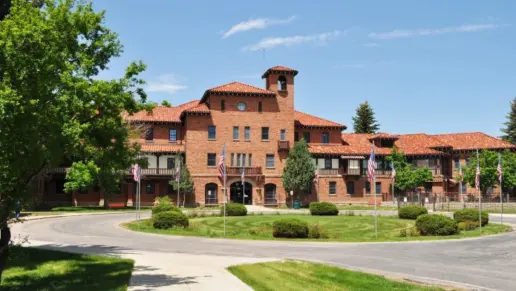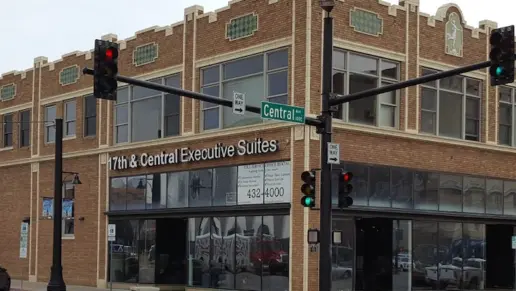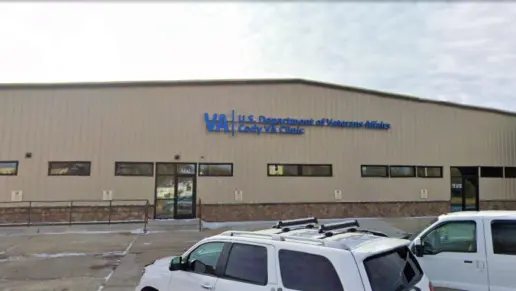About Veteran Services – Volunteers of America
The Veterans Services Volunteers of America Outreach office is located in Cheyenne, Wyoming. This office works with veterans who are experiencing hardships in their lives, whether it be mental health challenges or homelessness or struggles with substance use.
This nonprofit organization is committed to helping support both veterans and their families through a range of medical and mental and social services. Veterans face unique challenges that impact their mental health. As they deal with the experiences they had in training, on base, and during deployment — some of which were traumatic — it can be challenging to manage emotional and mental health. Unfortunately many veterans will turn to substance use to help alleviate some of the pain they might be feeling. This is where the support of Volunteers of America is invaluable.
The veteran services at Volunteers of America are designed to help you find your path to health and wellness. You can get referred to one of their transitional living facilities or find support through education and vocational support as well as life skills training. They can help you if you are struggling with dark thoughts and can connect you with basic life necessities like food and clothing.
Services look different for every veteran and for some it may mean addiction recovery and therapy while others might simply need a safe place to call home as they rebuild their life. There’s a network of support here that you can lean on and you can connect with other veterans who have faced similar challenges. You won’t feel alone, instead you’ll find companionship in individuals and staff who have experienced similar challenges.
The staff and Volunteers of America are committed to helping you and your family work toward a life of health and wellness.
Latest Reviews
Rehab Score
Other Forms of Payment
Private insurance refers to any kind of healthcare coverage that isn't from the state or federal government. This includes individual and family plans offered by an employer or purchased from the Insurance Marketplace. Every plan will have different requirements and out of pocket costs so be sure to get the full details before you start treatment.
Self-pay involves paying for treatment out of your own pocket. You can use savings or credit, get a personal loan, or receive help from family and friends to fund your treatment. If you don't have insurance or your insurance plan doesn't cover a specific program, self-pay can help ensure you still get the care you need.
Financial aid can take many forms. Centers may have grants or scholarships available to clients who meet eligibility requirements. Programs that receive SAMHSA grants may have financial aid available for those who need treatment as well. Grants and scholarships can help you pai for treatment without having to repay.
Sliding scale payments are based on a client's income and family size. The goal is to make treatment affordable to everyone. By taking these factors into account, addiction recovery care providers help ensure that your treatment does not become a financial burden to you or your family, eliminating one barrier to care.
Medicare is a federal program that provides health insurance for those 65 and older. It also serves people under 65 with chronic and disabling health challenges. To use Medicare for addiction treatment you need to find a program that accepts Medicare and is in network with your plan. Out of pocket costs and preauthorization requirements vary, so always check with your provider.
Military members, veterans, and eligible dependents have access to specific insurance programs that help them get the care they need. TRICARE and VA insurance can help you access low cost or no cost addiction and mental health treatment. Programs that accept military insurance often have targeted treatment focused on the unique challenges military members, veterans, and their families face.
Medicaid is a state based program that helps lower-income individuals and families pay for healthcare. Medicaid covers addiction treatment so those enrolled can use their coverage to pay for rehab. When a program accepts Medicaid the client often pays very little or nothing out of their own pocket.
Addiction Treatments
Levels of Care
Programs



Clinical Services
Cognitive behavioral therapy (CBT) in Wyoming can occur in various formats. Common types of CBT include dialectical behavior therapy, acceptance and commitment therapy, mindfulness based cognitive therapy, and rational emotive behavior therapy. The main focus of each is to help participants change thought and behavior patterns.
Substance use disorder treatment in Wyoming may include dialectical behavior therapy. This evidence based approach seeks to give clients the tools they need to manage their emotions and make healthy changes in thinking and behavior. Treatment includes individual sessions, group skills sessions, and homework assignments.
Group therapy sessions empower men and women in Wyoming to recognize their inner strength and capabilities as they work to overcome addiction. This helps boost self esteem and self confidence, which are factors in relapse prevention programs. By recognizing the triggers and high risk situations, you can develop coping mechanisms to maintain sobriety.
Men and women in Wyoming seeking personalized help for drug and alcohol addiction treatment usually undergo individual therapy. This involves a collaborative effort between you and the therapist to address your needs and challenges. A customized approach helps your therapist develop effective strategies to overcome addiction and maintain a substance free life.
Motivational interviewing helps you recognize the importance of change and your capacity to make change. It empowers you to change rather than providing warnings or directions to change. This method is often used in the treatment of substance use disorder.
Trauma therapy allows you to regain control over your life and gain a greater sense of safety and Trust in your environment. Within a safe and supportive space, your therapist helps you understand your responses and process the emotional and physical effects of trauma.
For many couples, attending couples therapy in Wyoming is a powerful way to strengthen their relationship. It can be useful for improving communication, increasing intimacy, navigating addiction, or rebuilding trust. Sessions typically last about 12 weeks.
Addiction takes an emotional toll on all members of the family. Family therapy sessions help members openly talk about these challenges and develop effective coping strategies to create a stable environment that supports their loved one's recovery.
Drug rehab in Wyoming typically includes multiple life skills activities. These teach you the skills you need for everyday life in recovery. Activities may include career coaching, social interactions, problem solving, and self care.
Amenities
-
Private Transportation
-
Residential Setting
-
Private Rooms
Accreditations

The Commission on Accreditation of Rehabilitation Facilities (CARF) is a non-profit organization that specifically accredits rehab organizations. Founded in 1966, CARF's, mission is to help service providers like rehab facilities maintain high standards of care.
CARF Accreditation: Yes

State Licenses are permits issued by government agencies that allow rehab organizations to conduct business legally within a certain geographical area. Typically, the kind of program a rehab facility offers, along with its physical location, determines which licenses are required to operate legally.
State License: Wyoming
Contact Information
510 W 29th St
Cheyenne, WY 82001


